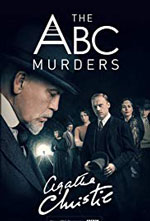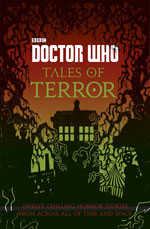(Week 1: Jan 1 – 5)
I’m going to start this year’s posts by looking back at my writing stats for the last four years. It seems like a crazy long time ago now, but it was in late 2014 that I made the decision to start getting up early in the mornings to do my writing (instead of struggling through the evenings). At the same time, I began recording my daily word counts so I could see if this new strategy was actually working.
This number crunching ended up serving a few purposes. Firstly, it gave me a reasonable idea of my average rate, so I now know how much I can expect to write per week/month. Secondly, it gave me a picture of which times of year I tended to write more or less. This is particularly valuable for the latter, as it helps me to work on strategies for beating those slumps (such as finding a warmer place to write on winter mornings).
Finally, it continues to offer a very simple reward strategy: the more words I write, the better I feel. And, if I have a frustrating day when I only manage to write a hundred words, I can console myself by looking at all the other days when I’ve written well above my average.
Writing
| Total words written | Total days of writing | Average words per day | |
| 2018 | 91,589 | 143 | 640 |
| 2017 | 34,679 | 65 | 534 |
| 2016 | 46,717 | 72 | 649 |
| 2015 | 85,548 | 118 | 725 |
So, I’m already feeling pretty good about that word count for 2018. It felt like a pretty productive year at the time, and those numbers prove the case. Sure, my average is a little down on some previous years, but I’ve been working on an assumed average of around 640 words per day for a while now so I’m very happy to be sticking with that.
Looking through the other years … 2017 is the same year that my marriage ended, so it’s not really surprising that there were a good few months in there that I didn’t get much done. 2016 found me writing a bunch of new stories, but I spent almost twice as many days editing that year as writing (and you’ll see those figures below). 2015 is still the year to beat: it’s the year I began working on a novel, which gave me a fairly consistent and disciplined workflow. For a while, at least …
Editing
| Total words edited | Total days of editing | Average words per day | |
| 2018 | 93,770 | 97 | 967 |
| 2017 | 91,508 | 97 | 943 |
| 2016 | 147,547 | 142 | 1,039 |
| 2015 | 130,865 | 103 | 1,271 |
I record my editing word counts quite simply: it’s the number of words in whichever chunk of whatever story I’ve edited that day. Sometimes this involves writing new words, or changing existing words, or just rereading what’s there. I usually do at least three drafts of any story, which means my editing word count would typically be at least twice that of my writing word count.
Clearly I’ve left 2018 with a slight editing backlog. The word count for 2016 is particularly high as I put serious effort into submitting my stories that year; so, naturally, I put a lot of time and effort into making them as good as they could be. 2015, meanwhile, is slightly lower due to me only getting to second draft stage on several chapters of the novel.
Days (and Totals)
| Total words crunched | Total Days’ crunching | Days missed | |
| 2018 | 185,359 | 240 | 125 |
| 2017 | 126,187 | 162 | 203 |
| 2016 | 194,264 | 214 | 161 |
| 2015 | 216,413 | 221 | 144 |
For this stat, I simply total up the number of days on which I did any writing or editing (for days missed, I then subtract that from the total number of days in the year). I take every Saturday off, so I’m automatically down by 52 before I even start. Then there’ll be days where I’m sick, or overslept, or something else comes up.
I’m pretty happy with my stats for 2018, but if there’s one stat I’d like to improve in 2019, it’s this one: I’d really like to see it nudge a lot closer to 300 days for this year.
Targets
So, based on all of the above, I reckon my targets for 2019 could look something like:
- Writing total: 64,000 words (100 days @ 640 words/day)
- Editing total: 200,000 words (200 days @ 1,000 words/day)
Let’s see how I do.
(Author’s note: so, although my 2019 posts are going to be primarily writing focused, I have decided to keep my Watching and Reading sections. This is mostly because I enjoy writing these bits, but also because it gives me the opportunity to talk about stories that other people are telling!)
Watching

January 2 saw the debut of the first ever New Year’s Day Doctor Who special (“Resolution”). It proved to be a perfectly entertaining episode that’s packed so full of stupid that it’s hard not to loathe yourself a little for enjoying it once you start scratching below the surface. While there was undeniably a lot of fun to be had, I could go on for way too long about the simple flaws and inconsistencies that could have easily been ironed out had someone taken another pass over the script. Rather than pick through them myself, I’ll pass this one over to Andrew Ellard and his always excellent Tweetnotes on the episode.

I also watched The ABC Murders, the latest BBC/Sarsah Phelps/Agatha Christie adaptation. I’d checked out Ordeal By Innocence (the previous year’s offering) a week earlier, and found myself far less engaged by this Poirot-based follow up. It was perfectly good, but somehow lacked the compelling sense of mystery and personal drama that has driven the other Phelps/Christie adaptations.

My final notable viewing of the week was The Babysitter, one of Netflix’s horror movie offerings. This was awesome. It was as if John Hughes, Quentin Tarantino and Sam Raimi had decided to make a horror movie together. Given the freshness and energy on display, it’s all the more surprising to note that it’s directed by McG; someone you’d expect to be a bit jaded after being chewed up and spat out by the Hollywood machine. I won’t say much more about it, for fear of spoiling a few surprises, but there’s a lot of fun to be had with this one.
Reading

Main reading this week is a short story collection called Doctor Who: Tales Of Terror, which my awesome partner bought me for Christmas. As you might deduce, it’s a collection of short, horror-themed Doctor Who stories. Excellent! Of course, Doctor Who is traditionally tinged with terror, but most of these tales still manage to do something with the theme. That said, they are clearly written with an all-ages audience in mind, so there’s only so far they can go.
The best part is that each of the twelve stories features one each of the twelve Doctors (as of the time of publication), which gives a satisfying sense of progression to the collection.
For now, have a quick summary of the first six stories:
- The First Doctor, Stephen and Dodo find themselves in the midst of a particularly creepy Halloween party, and run into an old foe. A fun way to start the collection: suitably themed, and with some nice fan service;
- The Second Doctor is forced to come to the rescue when Ben, Polly and Jamie try out a ouija board they find in the secondary control room. This felt like the horror angle had been forced in somewhat, but was still an enjoyable romp;
- The Third Doctor and Jo Grant encounter a stranded dalek hiding in the woods. It was funny reading this one so soon after the New Year’s Special (Resolution) given the obvious similarities. This one could have easily ramped up the horror, so there’s a small feeling that there’s a missed opportunity here, but it was a pretty well rounded story and felt very authentic to the era;
- The Fourth Doctor, Sarah Jane and Harry fend off witches trying to invade the TARDIS. This wasn’t perhaps the most memorable story, but had some nice links to specific Ninth and Tenth Doctor stories, and also earns marks for giving Harry Sullivan a bit more time on board the TARDIS;
- The Fifth Doctor, Tegan and Turlough have an unexpected reunion with a familiar adversary. This one was actually pretty dark, and did a nice job of using the little-seen, oft-derided Kamelion;
- The Sixth Doctor has to contend with some mysterious trick or treaters, in a tale which turns out–quite nicely–to be a sequel to the first tale in this collection.
If I had to choose only one of the above to read again, it would probably be the Third Doctor one (though I particularly enjoyed the Sixth Doctor story too).
